In the ever-evolving world of digital marketing, staying ahead of the curve is crucial. The right tools can significantly enhance your marketing efforts, streamline workflows, and drive better results. As we navigate through 2024, here are some of the best online marketing tools that can help you achieve your business goals.
1. HubSpot
HubSpot continues to be a leading choice for businesses looking for an all-in-one marketing solution. HubSpot’s comprehensive suite includes tools for:
- Marketing Automation: Streamline your marketing processes and personalize customer interactions with automated workflows.
- CRM: Keep track of your customer relationships and sales pipelines with an intuitive CRM system.
- Content Management System (CMS): Create and manage website content with ease using HubSpot’s CMS.
- Analytics: Gain insights into your marketing performance with robust analytics and reporting features.
HubSpot’s integrated platform makes it easier to align marketing, sales, and customer service efforts, providing a seamless experience for both your team and your customers.
2. SEMrush
For businesses focused on improving their search engine visibility, SEMrush is an indispensable tool. It offers a comprehensive set of features for:
- SEO: Perform keyword research, track keyword rankings, and analyze competitors to optimize your search engine strategy.
- Content Marketing: Discover new content ideas, track content performance, and optimize your existing content.
- PPC: Manage and optimize your pay-per-click campaigns with detailed analytics and competitive insights.
- Social Media: Schedule posts, monitor engagement, and analyze social media performance across multiple platforms.
SEMrush’s all-in-one approach helps you stay ahead of the competition and improve your online presence effectively.
3. Canva
Canva has revolutionized the way marketers create visual content. This user-friendly design tool allows you to produce professional-quality graphics, even if you don’t have a background in design. Key features include:
- Templates: Access a vast library of templates for social media posts, presentations, flyers, and more.
- Drag-and-Drop Interface: Easily create and customize designs with a simple drag-and-drop interface.
- Brand Kit: Maintain brand consistency with a centralized brand kit that includes your brand’s colors, fonts, and logos.
- Collaboration: Collaborate with team members in real-time to streamline the design process.
With Canva, you can create eye-catching visuals that enhance your marketing campaigns and engage your audience.
4. Hootsuite
Managing multiple social media accounts can be challenging, but Hootsuite simplifies the process. This social media management platform offers a range of features to help you:
- Scheduling: Schedule posts in advance across various social media platforms to maintain a consistent online presence.
- Monitoring: Track brand mentions, keywords, and engagement to stay informed about what’s happening in your industry.
- Analytics: Analyze social media performance and generate detailed reports to measure the impact of your campaigns.
- Team Collaboration: Coordinate with your team and manage social media workflows efficiently.
Hootsuite’s robust platform makes it easier to manage your social media strategy and connect with your audience effectively.
5. Google Analytics
Google Analytics remains a cornerstone for any digital marketer looking to understand their website’s performance. This powerful tool provides insights into:
- Website Traffic: Track the number of visitors, their behavior, and the sources of your traffic.
- User Behavior: Analyze how users interact with your site, including which pages they visit and how long they stay.
- Conversion Tracking: Measure the success of your marketing campaigns by tracking conversions and goal completions.
- Audience Insights: Gain a deeper understanding of your audience’s demographics, interests, and behavior.
By leveraging Google Analytics, you can make data-driven decisions to optimize your website and improve your marketing efforts.
6. Mailchimp
Email marketing remains a powerful tool for engaging with your audience, and Mailchimp is one of the best platforms for this purpose. Key features include:
- Email Campaigns: Design and send professional email campaigns with customizable templates and a drag-and-drop editor.
- Marketing Automation: Automate email sequences to nurture leads and keep your audience engaged.
- Segmentation: Segment your audience based on various criteria to deliver more personalized and relevant content.
- Analytics: Track the performance of your email campaigns with detailed analytics and reports.
Mailchimp’s user-friendly interface and powerful features make it a top choice for businesses looking to boost their email marketing efforts.
7. Buffer
Buffer is another excellent tool for managing social media, particularly if you’re looking for a simple and straightforward solution. It offers features such as:
- Scheduling: Schedule posts across multiple social media platforms with ease.
- Analytics: Analyze the performance of your social media posts and campaigns.
- Content Curation: Discover and share relevant content to keep your audience engaged.
- Team Collaboration: Work with your team to manage social media accounts and streamline workflows.
Buffer’s intuitive interface and powerful features make it a popular choice for social media management.
8. Ahrefs
Ahrefs is a powerful SEO toolset that offers a range of features for optimizing your search engine strategy. It includes:
- Site Audit: Identify technical SEO issues and optimize your website’s performance.
- Keyword Research: Discover new keyword opportunities and track keyword rankings.
- Backlink Analysis: Analyze your backlink profile and monitor your competitors’ backlinks.
- Content Explorer: Find popular content in your industry and gain insights into what works.
Ahrefs’ comprehensive toolset helps you improve your SEO efforts and drive more organic traffic to your website.
Conclusion
In 2024, leveraging the right online marketing tools can make all the difference in achieving your business goals. Whether you’re looking to enhance your SEO strategy, manage social media more effectively, create stunning visuals, or track your website’s performance, these tools offer the features and functionality you need. By investing in these top online marketing tools, you can streamline your workflows, make data-driven decisions, and ultimately, drive better results for your business. Stay ahead of the competition and ensure your digital marketing strategy is equipped for success in 2024 and beyond.






